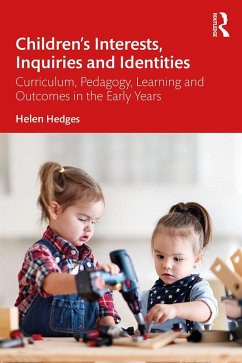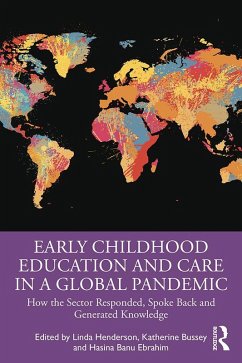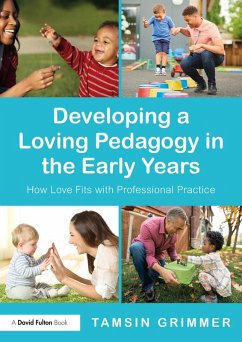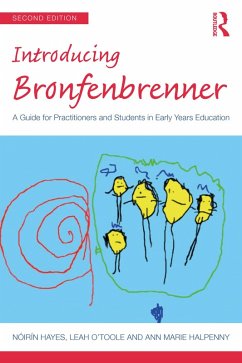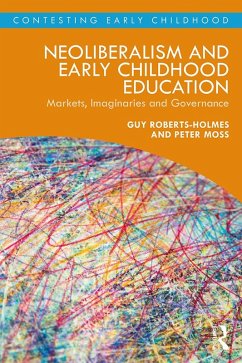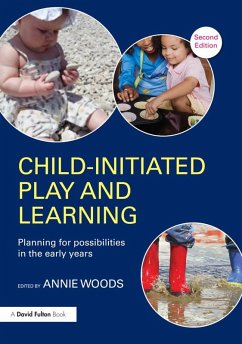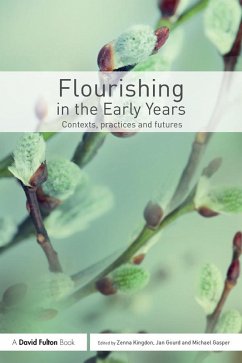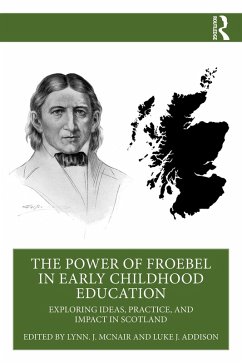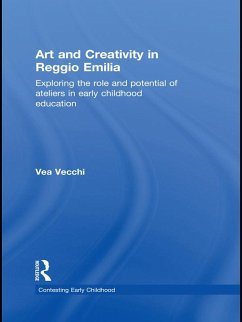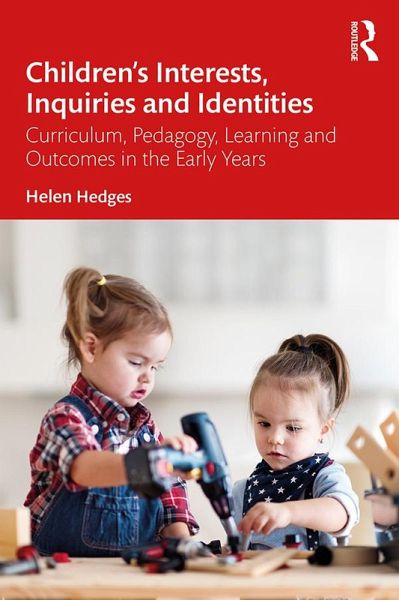
Children's Interests, Inquiries and Identities (eBook, PDF)
Curriculum, Pedagogy, Learning and Outcomes in the Early Years
Versandkostenfrei!
Sofort per Download lieferbar
36,95 €
inkl. MwSt.
Weitere Ausgaben:

PAYBACK Punkte
18 °P sammeln!
Children's curiosity about their lives and worlds motivates many interests. Yet, adults often have fixed ideas about what children's interests are and have been criticised for trivialising children's interests. This book offers a critical and accessible engagement with research on children's interests that challenges us to move beyond surface-level understandings.Children's Interests, Inquiries and Identities argues that the powerful relationship between interests and informal learning has been under-recognised and undervalued. The book proposes new principles for understanding children's lear...
Children's curiosity about their lives and worlds motivates many interests. Yet, adults often have fixed ideas about what children's interests are and have been criticised for trivialising children's interests. This book offers a critical and accessible engagement with research on children's interests that challenges us to move beyond surface-level understandings.
Children's Interests, Inquiries and Identities argues that the powerful relationship between interests and informal learning has been under-recognised and undervalued. The book proposes new principles for understanding children's learning. It provides evidence that we need to look beyond the activities or topics children may currently be selecting to find out who and what has stimulated their interests, how we might identify and interpret interests more analytically and deeply, and how we might respond and engage with these in ways that take children's interests seriously. Moving beyond play-based activities, Helen Hedges explains and illustrates a number of ways by which children's interests can be interpreted and understood, to get to the heart of what really matters to, and for, children. The book draws on examples from research with children aged under 5 years, and young adults aged 18-25. It also includes a chapter on teachers' interests. It presents new and original models for interests-based curriculum and sociocultural curriculum and pedagogy for future examination in research and practice.
This book demonstrates that leaving behind long-standing, taken-for-granted practices that have influenced understandings of curriculum, pedagogy, learning, and outcomes allows a new perspective of children's interests to emerge. It will be of interest to researchers, postgraduate students, and practitioners in the early years, parents, and other professionals who work with young children.
Children's Interests, Inquiries and Identities argues that the powerful relationship between interests and informal learning has been under-recognised and undervalued. The book proposes new principles for understanding children's learning. It provides evidence that we need to look beyond the activities or topics children may currently be selecting to find out who and what has stimulated their interests, how we might identify and interpret interests more analytically and deeply, and how we might respond and engage with these in ways that take children's interests seriously. Moving beyond play-based activities, Helen Hedges explains and illustrates a number of ways by which children's interests can be interpreted and understood, to get to the heart of what really matters to, and for, children. The book draws on examples from research with children aged under 5 years, and young adults aged 18-25. It also includes a chapter on teachers' interests. It presents new and original models for interests-based curriculum and sociocultural curriculum and pedagogy for future examination in research and practice.
This book demonstrates that leaving behind long-standing, taken-for-granted practices that have influenced understandings of curriculum, pedagogy, learning, and outcomes allows a new perspective of children's interests to emerge. It will be of interest to researchers, postgraduate students, and practitioners in the early years, parents, and other professionals who work with young children.
Dieser Download kann aus rechtlichen Gründen nur mit Rechnungsadresse in A, B, BG, CY, CZ, D, DK, EW, E, FIN, F, GR, HR, H, IRL, I, LT, L, LR, M, NL, PL, P, R, S, SLO, SK ausgeliefert werden.




